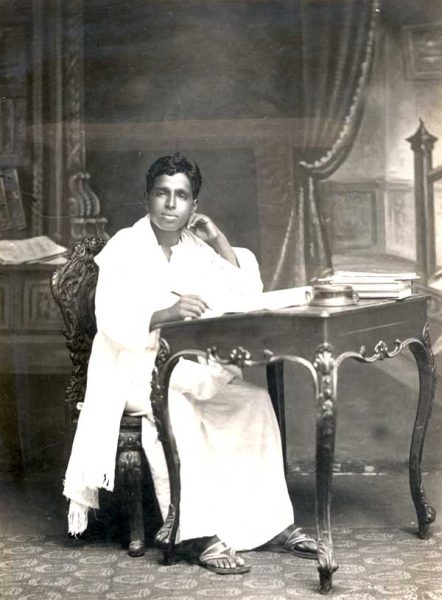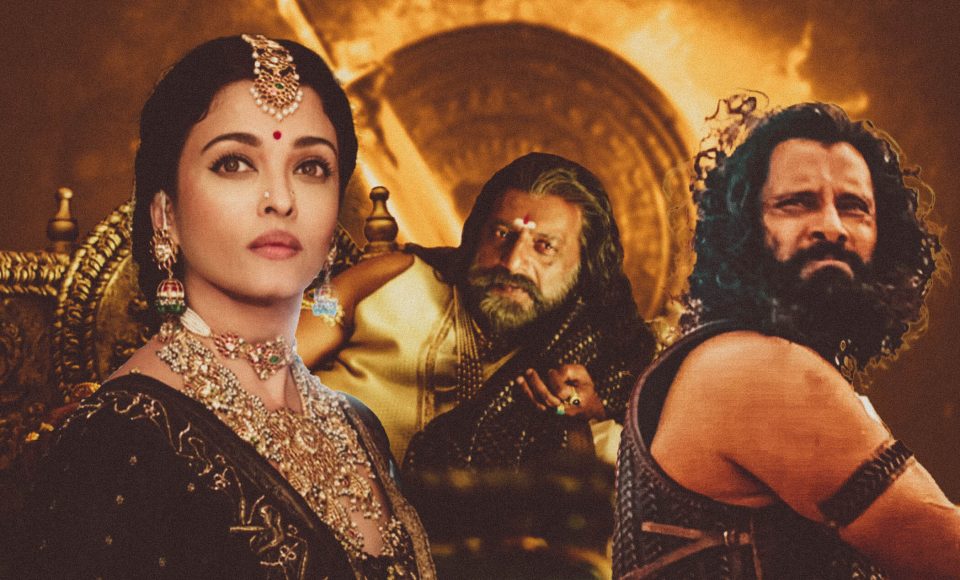
How Kalki Krishnamurthy became a cult before ‘Ponniyin Selvan’

The epic novel Ponniyin Selvan should be banned, an irate critic declared recently. Readers must learn that its author, ‘Kalki’ R Krishnamurthy (1899-1954), is not a one-book wonder, but a prolific writer and pioneer of modern Tamil literature.
Seventy years after it was published, this 2,500-page historical saga in five volumes continues to remain a bestseller, breaking records as the single-most read Tamil work of fiction, then and now. Once Kalki’s works were nationalised, multiple publishing houses have been bringing out their own reprints of Ponniyin Selvan, ranging from illustrated hardbacks to patchwork editions. This year, with the screen version of this quintessential Tamil classic about to be released, its English translations, audio and ebooks too are enjoying popularity.
Kalki had become a cult figure in the Tamil realm much before Ponniyin Selvan was published — as journalist, political analyst, social reformist, magazine editor, essayist, travel writer, critic of the arts, custodian of culture, proponent of Tamil music, commentator on current affairs, ace fictionist. He had even penned a few poems and a filmscript. A fellow journalist called him “a film star among writers,” not without envy. He had written the first historical novel in Tamil, a genre in which he remains unsurpassed. Serialised in his eponymous magazine, Partiban Kanavu (1941-43) allegorized the thirst for freedom in a Chola prince. Sivakamiyin Sapatam (1944-46) and Ponniyin Selvan (1950-54) recreated the magnificent traditions of art, culture and literary achievements in the eras of the Pallavas and Imperial Cholas, which were brought to bear on contemporary Tamil self-fashioning.
What inspired a village boy from an indigent family in humble circumstances to write the way he did? I found the answer when I translated Ponniyin Pudalvar and Alai Osai during the “Covid years”. The first is ‘Sunda’ MRM Sundaram’s monumental biography of the writer, published in English as Kalki Krishnamurthy: His Life and Times (2022). The second is my favourite Kalki novel, to be launched as The Sound of Waves.

Sunda’s biography is not about an individual. It is a chronicle of the Indian independence movement, with its attendant movements of reform and renaissance that Kalki had witnessed, participated in, analysed and recorded. Kalki’s career began when he quit school in response to Gandhi’s call for non-cooperation to become a writer of pamphlets at the office of the Congress party in Tiruchi. This fervour was fuelled by his training in journalism at Navasakti, Madras, edited by Tamil scholar, trade unionist and independence activist TV Kalyanasundara Mudaliar, and when he assisted his leader C Rajagopalachari (Rajaji) in editing and publishing the anti-liquor magazine Vimochanam.
Also read: Encounter with vodka à la Rooskie: When two Russians went berserk
Kalki came into his own as editor and writer when he joined Ananda Vikatan, boosting its image and sales. His political commentaries aroused strong responses, his art critiques launched debates: He had crafted a style of his own — fluent, frothing with humour, where complex ideas became easy to grasp as in a companionable exchange between friends. Kalkitamizh, they called it.
In no time at all he found himself turning into a beloved author for thousands of readers. The bitterness of parting ways with the magazine he had nurtured was forgotten in the excitement of launching his eponymous magazine Kalki (1941). This was in partnership with friend and fellow revolutionary T Sadasivam, whose wife, Carnatic musician MS Subbulakshmi, raised the funds with a film role.
In every town and village across the state, on the day the weekly issue of Kalki arrived, readers queued to grab their copies at railway stations, bus stops and newsstands. To avoid tussles among family members, some households subscribed to two issues. In others, the whole family gathered to hear the chapters read aloud. The Audit Bureau of Circulation had certified that each Kalki issue had a print order of 71,366. In the 1950s, Kalki’s circulation was higher than that of any newspaper or magazine in any language in India.
Success brought criticism. Particularly from the writers of the Manikkodi group who accused Kalki of plagiarism and populist writing. On the political front, his unwavering championship of lifelong mentor Rajaji drew attacks from the “anti-Rajaji” faction in his own Congress Party. Then there were salvos from the rationalists of the Dravida parties opposed to the Congress. Conservatives resisted his reformist credos. Revelling in these polemical disputes, Kalki used his trademark humour with deadly effect in response. Moreover, his ability to give praise wherever it was due, even to those who opposed him, added to his stature. Even the Dravida leaders admitted, “Kalki could appreciate the fragrance of a flower even when it bloomed in his adversary’s garden.”
Meanwhile, Kalki had evolved into a captivating orator, campaigned for political, social and cultural reform. He raised funds for multiple causes, particularly for indigent writers. He masterminded the building of memorials to Subramania Bharati in the poet’s native Ettayapuram, and to Mahatma Gandhi in Madras. His son declared, “Father didn’t know what fatigue meant.”
In 1933, when a critic accused him of aiming at propaganda instead of literary worth, an unfazed Kalki shrugged, “Expect writings of lasting literary value from the hundreds and thousands of Tamil writers who will appear hereafter. Let me be what I am, a propagandist!”
Every word he wrote promoted self-confidence and cultural pride in his compatriots, to replace self-distrust and the sense of inferiority engendered by colonial oppression. A Gandhian to the core, he fought against every kind of caste, creed and gender discrimination. His women were bright, strong, intelligent agents of hope and progress.
Kalki’s novel Alai Osai replays the historical events of the independence struggle recounted in Kalki’s biography. But as Kalki paints them in his own words, the same events begin to trigger urgent questions for us today — in politics, philosophy, ethics, the problems of society, gender, cultural revisionism and ideas that shape the world here and now. The novel has all the elements of a Kalki narrative from romance to surprise twists. But all these riveting devices of fiction move towards a single goal. To make the reader reflect on the responsibilities of the state and the citizen as we move into a more complex future.
For Kalki Krishnamurthy, the act of writing was an assertion of values.
Gowri Ramnarayan is a playwright, theatre director, translator and freelance journalist.
Founder, inhouse playwright and artistic director, JustUs Repertory, she was formerly Deputy Editor, The Hindu, and vocal accompanist to Carnatic musician MS Subbulakshmi. She is now Chairperson, Rukmini Devi Arundale Trust, Senior Associate Editor, Sruti Magazine, and Adjunct Faculty, Asian College of Journalism. Kalki’s oldest granddaughter, Ramnarayan has translated MRM Sundaram’s biography of Kalki (Kalki Krishnamurthy: His Life & Times, Kalki Biography Project), Kalki’s short fiction (Selected Stories, Penguin), and his Sahitya Akademi-winning novel (The Sound of Waves, Hachette).

